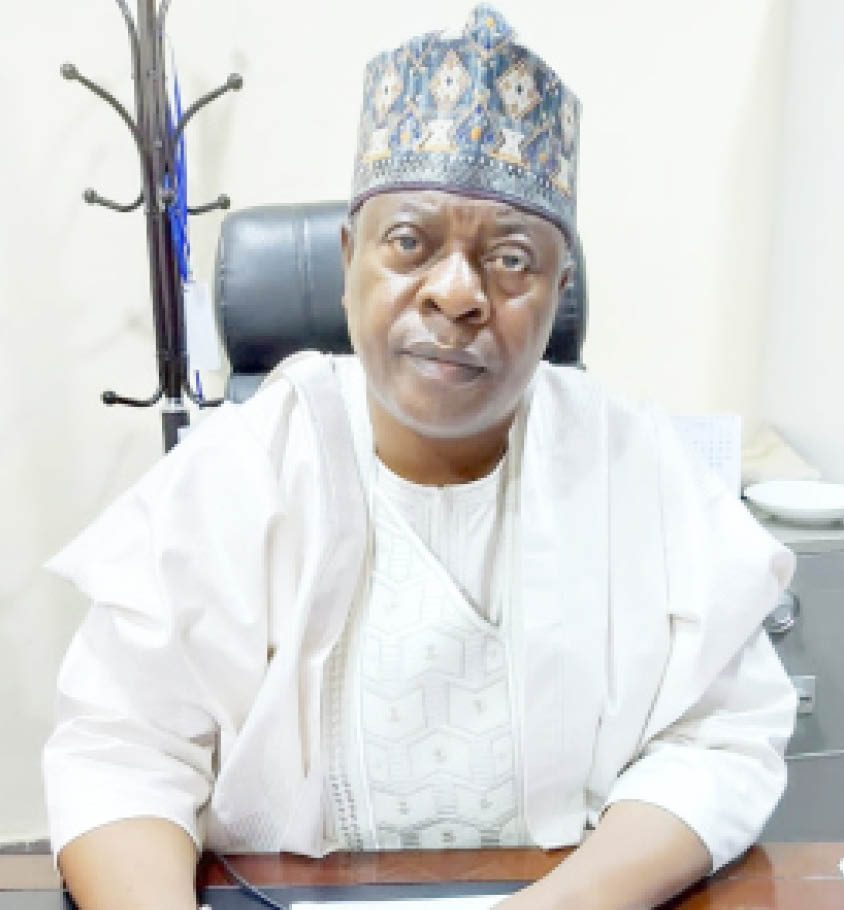The Abuja Markets Management Limited (AMML) is saddled with the responsibility of managing markets in Abuja and some satellite towns. In this interview, the acting managing director of the agency, Abbas Yakubu, an engineer, spoke on issues surrounding operation and safety of markets.
What are the functions of the AMML and which markets are you responsible for in Abuja?
The AMML was set up in 2004 by the Abuja Investment Company, the investment arm of the Federal Capital Territory (FCT) Administration. The main purpose was to manage the markets belonging to the FCTA. These markets are Wuse, Garki Model Market, Gudu Market, Kado Fish Market, Dei-Dei Building Materials Market, and other neighbourhood centres like areas 1, 2, 3, 7, UTC and Wuse Zone 3 shopping and neighbourhood centre.
- I want to put African creatives, creators on global stage – Roye Okupe
- Floods: Int’l orgs urge FG to give N48bn to 790,254 displaced victims
Our function is basically to ensure that these markets are safe, secure and clean for business. We do that by engaging specialists like cleaning companies and security firms. They do these works for us and we collect revenue from traders to pay them.
We also ensure that human and vehicular movements are free through the gates, as well as within the markets and ensure that facilities like roads and drainages are well maintained to avoid flood or congestion in the markets.
There were talks in the recent past of plans to start tolling Abuja markets, is it still on?
Yes, we actually want to take off at Wuse and Garki markets at the same time. I can tell you that in the next two months there will be toll gates there. The issue has been on the table. The processes of engaging the experts takes a while, but we are almost closing in; and God willing, we will soon kick-start the toll gates.
You have been at the helm of affairs for the past six months, what strategies do you have? How far have you gone, and what stumbling blocks are you facing?
When I came on board in February this year, I drew up a four-point agenda. I want to improve on our accountability, as well as develop a robust process for revenue growth and provide extraordinary service delivery in our markets.
We also came up with the strategy to ensure that at all times we have the resources to take care of the markets. We have what we call mutual respect between us and traders. And we must have response time – within five minutes we must respond to problems.
We also came up with a strategic growth plan, which we laid out over a two-year roadmap, that at every stage we have where we are heading. We check ourselves quarterly, and at the end we expect to see growth.
We have three goals, – that our stakeholders should be happy, that we consolidate on the businesses we are doing and expand, and to diversify because the existing businesses alone will not sustain the company.
Talking about service delivery and boosting revenue, how do you leverage on technology?
Well, in terms of the processes for doing business, we met mostly analogue system in place and we can’t go on that way. We must digitalise, so, presently, we have the SAGE 50 accounting software in progress, such that we will have a digitalised process of revenue collection.
We also have CCTV cameras in Garki market, which is digitalising our operation surveillance system.
We are going beyond that into drone, particularly in Dei Dei market. And we are going to mechanise our cleaning process instead of manual methods, as well as reduce the cost of waste disposal through bio digesture technology.
Talking about revenue improvement, yes, previously you would get, say 57 per cent collection, but now our, target is to get between 80 per cent and 100 per cent. It is not easy to collect payment from traders. We have exceeded what we hitherto collected because of the new method.
There is clear improvement in service delivery process, traders are now encouraged to pay as at when due.
Is the AMML actually a facility management outfit?
The AMML is 100 per cent a facility management company. Usually, it is understood that we are an agency set up for revenue collection and delivery for government. Let’s call what we do as inflow income because this is not money that is remitted to government. This company was set up without any subvention, so the money we are collecting is to run the markets. So we are purely a facility management company, it is just that we are leveraging on government, which set us up.
What are you doing to improve the assets of the company?
Well, these assets are actually in custody of the Abuja Investments Company Limited Ltd. We are only managing it for them, but in order to ensure that after many years the value improves is through maintenance. If you are given an asset to keep you don’t let it rot.
How much is your projected revenue?
The amount varies; it is not fixed. When we come up and say we want to clean the market, we and the traders sit to agree on the cost and we collect the money and pay the people.
There is a lingering issue between traders at the UTC and your agency, what is the latest?
Abuja is close to 40 years, so the city has grown, and UTC has become relatively small for the increasing population of traders; hence you see congestion, attachments and what have you. So the owners of the market said let us re-develop it by bringing down old structures and building a better market, but the traders don’t think so. Abuja Investments wants Abuja to be a world-class city. So the problem is whether to develop or not.
A lot of efforts have been made to enlighten the traders through town hall meetings etc, but they probably don’t trust the government. Maybe they fear that government would re-develop and allocate to rich people. But assurance has been given to them that if there are 100 shops and we re-develop to 200 or 300, the 100 would be theirs to keep, even at discounted rates.
Would you say that the AMML is in tune with the Financial Reporting Council?
Yes, at the time I came on board, reporting of revenue was done through phone call, but now, we have basic technology like WhatsApp, so we set it up and see revenue collected from markets. Everyone can see it, so it is transparent. And in order to go beyond that, we decided to use the SAGE 50 accounting system, which allows you to get revenue and use digital receipts. If you make a payment in your bank, it is reflecting directly in our accounts. Very soon, we will have an App where, even without internet you get a notification that your rent is due, you have paid this and the balance is this.
What striking strategy have you introduced since you came on board?
I commend those who started this company; they worked very hard and should be applauded. What I am bringing is just technology to improve on the processes. When it comes to infrastructure, we introduced community effort through corporate social responsibility. At Dei-Dei, we got a developer to fence the place and converted the spaces to pay parking and concessioned it to this developer who can then recoup his money. We are also introducing solar lights through this same corporate social responsibility. This way, we can relieve government, as well as the traders.
What are you doing to solve the problem of inadequate power supply?
We are looking at alternative power supply – solar. In Garki Model Market, we are discussing with an interested technical company that deals in such. Our role is to mediate. This aims at having sustained power rather than depending on the Abuja Electricity Distribution Company (AEDC. It is about 65 per cent completed, particularly in Wuse Market.
The problem with the traffic situation around Wuse market has become a recurring decimal, what are you doing to solve this?
We are looking at three things we can do. The first is to know what causes it.
We are introducing the automation system, which doesn’t require you to pay at the gate. As you drive in, you pick a card, then go in and do your business. You will go to a point and pay. And on your way out you declare the card and get passage. So, by this automation, we are reducing the time of entry.
On parking along the way, we are discussing with the FCT Transport Secretariat on an initiative they came up with, called off street parking. All the areas not being used around the market will be used for the off-street parking.
And during rush hours, besides the two entrances, we want to concentrate on the back. When you enter you can get access at the back. Apart from the existing exits, there is a garden at the back with a pedestrian bridge; if we get approval we can get an exit there so that you don’t come out through the front.

 Join Daily Trust WhatsApp Community For Quick Access To News and Happenings Around You.
Join Daily Trust WhatsApp Community For Quick Access To News and Happenings Around You.


